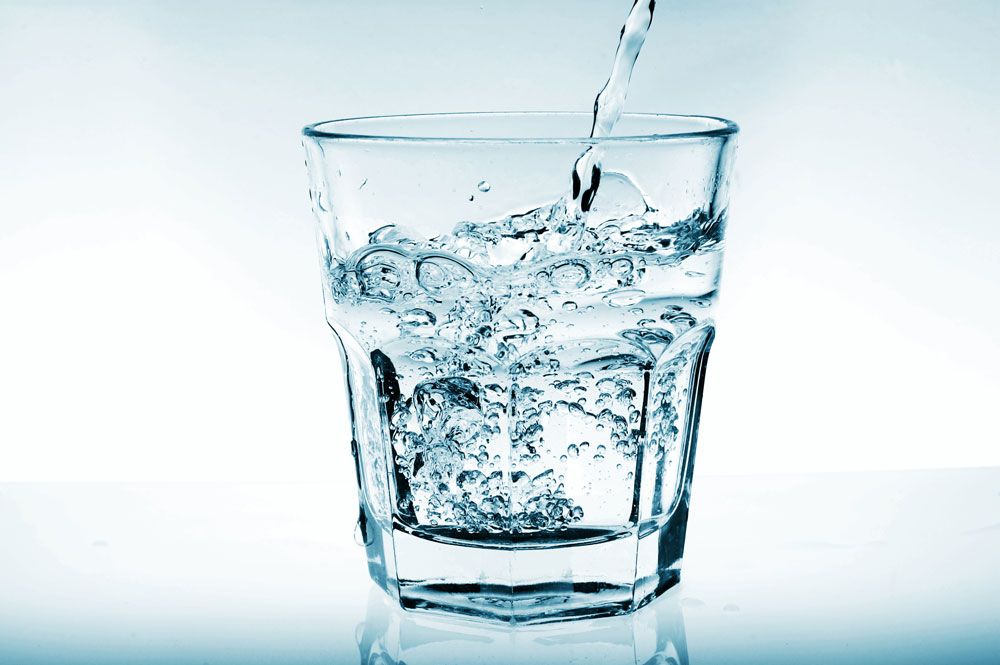During a heatwave, work at the nursing home must be adjusted.
This article is translated with AI and written based on Swedish conditions. Hopefully, it can inspire interested individuals from other countries.
There can be many signs of dehydration. Older people are sensitive to dehydration and can easily develop various symptoms. Having routines to provide fluids and being attentive to when someone is at risk of becoming dehydrated is important. Heatwaves, stomach flu, and fever are situations where the risk of dehydration increases. The nurse can implement a fluid list if needed, but everyone must be attentive so that no resident suffers from dehydration.
 Foto: Mostphotos
Foto: MostphotosDehydration
Dehydration can occur for several reasons. Diarrhea is one. Many older people do not drink enough. The kidneys take what is required for them to function. With well-functioning kidneys, the need is about 0.5 liters per day. With poorly functioning kidneys, up to 2.5 liters of urine may be needed to cleanse the blood of waste products.
We take in fluids in many ways. The most important is what we drink, but food also contains water. In addition, water is formed when the body converts carbohydrates, fats, and proteins into energy. As we age, we often have an increased need for fluid, partly due to the kidneys' function deteriorating. In addition, the water content in the body decreases as muscle mass decreases. Many older people do not feel thirst in the same way or may avoid drinking due to incontinence issues. Medication side effects can also contribute to decreased thirst and appetite. Many older people also have difficulty swallowing due to various health conditions.
Symptoms of dehydration
Symptoms of dehydration include dry mouth, fatigue, small amounts of urine, and dark-colored urine. In severe dehydration, the pulse rate increases, the person may become confused and eventually lose consciousness. Those who constantly drink too little can easily become constipated. Dry skin is also a sign. Diarrhea associated with palpitations, anxiety, and tremors can also be symptoms of hyperthyroidism. Dehydration can also cause dry mouth, which can often be bothersome and affect dental health.
Risk of dehydration
Situations where the risk of dehydration is higher include:
- Heatwave
- Stomach flu, diarrhea, vomiting
- Fever
- Certain medication treatments
- Individual risks, does not feel thirsty, has difficulty fending for themselves.
Routines to prevent residents from becoming dehydrated
- Offer residents to drink regularly.
- If a resident has difficulty consuming fluids, fluid registration is prescribed
- A pleasant environment with social interaction stimulates participation in coffee breaks and other community activities.
- If necessary, adaptive aids to facilitate the resident's intake of fluids.
- The design and color of the crockery can affect the desire to drink.
- In case of swallowing difficulties, the individual may need swallowing therapy.
Drinking too little water can damage the kidneys
Decreased blood volume: When the body loses fluid through sweating or inadequate fluid intake, blood volume decreases. This results in a reduced amount of blood reaching the kidneys.
Increased concentration of waste products: The kidneys filter waste products from the blood and convert them into urine. In case of fluid deficiency, the concentration of these waste products becomes higher as there is less fluid to dilute them.
Decreased urine production: When the kidneys detect fluid deficiency through hormonal signals from the brain, they decrease urine production to conserve as much fluid as possible.
Risk of kidney damage: If the fluid deficiency becomes prolonged, the kidneys can be damaged. This can lead to kidney stones, kidney failure, and other serious health problems.
Reflection Questions - Dehydration
Caregivers:
- Do you have good conditions to detect dehydration?
- Do the routines also work on weekends, evenings, and nights?
- Are there routines you should improve?
Manager, Nurse, Occupational Therapist, and Physiotherapist:
- Do the employees have good knowledge about dehydration?
- Do you know that the routines work?
- Are there routines that also work during on-call hours?
- Are the routines documented and known?
Residents and relatives:
- Is your relative drinking properly?
- Have they shown signs of dehydration at any time?
Erland Olsson
Specialist nurse
Sofrosyne - Better care every day

Aktuellt i media
-
2025-12-18 04:00
16 Sjukdom och död
Survivor conversations - an important element in working with next of kin
info Bild från Summer Stock
Bild från Summer Stock - 2025-12-15 04:00 17 Psykisk hälsa
- 2025-12-11 04:00 07 Riskhantering
- 2025-12-08 04:00 06 Dokumentation
- 2025-12-03 04:00 06 Dokumentation
- 2025-12-01 04:00 02 Värdegrund






